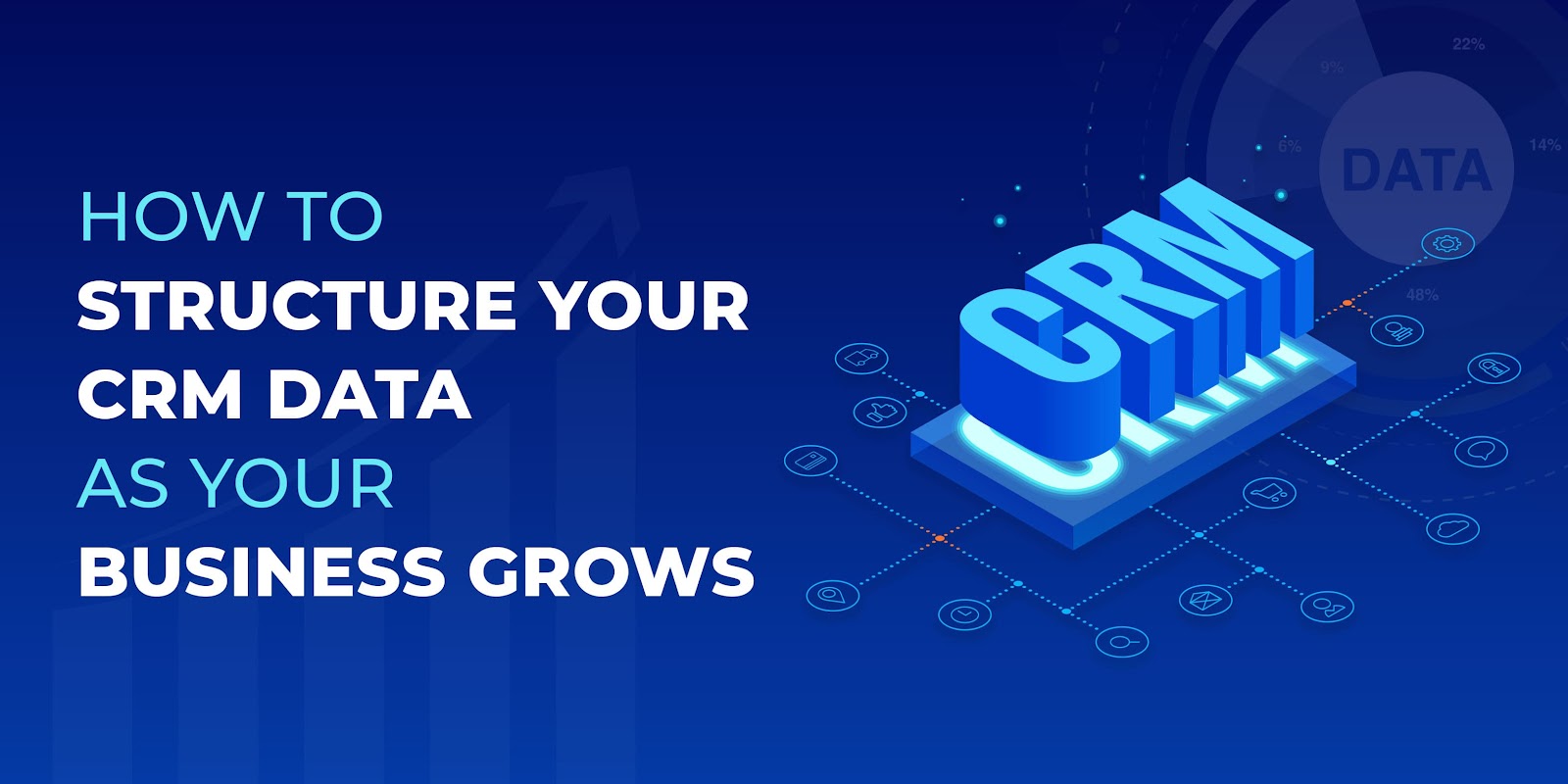How to Structure Your CRM Data as Your Business Grows

In the dynamic landscape of business, customer relationships are central to success. As your business expands, managing customer data becomes increasingly complex. Effective Customer Relationship Management (CRM) is crucial for nurturing these relationships and driving growth. However, as a company grows, structuring CRM data efficiently becomes a significant challenge. This blog will guide you on how to structure your CRM data to align with your business growth, ensuring that your CRM system remains an asset rather than a burden.
Understanding CRM Data Structure
CRM data refers to the information that businesses collect about their customers, including contact details, purchase history, interactions, and more. Structuring this data involves organizing it in a way that is both accessible and actionable. Proper structuring helps in generating meaningful insights, improving customer interactions, and enhancing overall efficiency.
The Importance of Effective Data Structuring
As businesses grow, their customer data volume increases, and so does the complexity of managing it. An organized CRM data structure ensures that you can:
Quickly Access Relevant Information: Efficient data structuring means you can retrieve customer information swiftly, which is critical for timely decision-making and personalized customer interactions.
Improve Data Quality: Structured data helps in maintaining accuracy and consistency, reducing the risk of errors that can lead to misinformed decisions or customer dissatisfaction.
Facilitate Scalability: As your business scales, a well-organized CRM data structure supports the seamless addition of new data and users without disrupting existing operations.
Enhance Analytics and Reporting: Proper data structuring allows for more effective analysis and reporting, providing insights that drive strategic decisions and improve business performance.
Key Strategies for Structuring CRM Data
1. Define Clear Data Categories
Start by categorizing your data based on the different aspects of your customer relationships. Typical categories include:
Contact Information: Basic details like names, email addresses, phone numbers, and physical addresses.
Interaction History: Records of past communications, meetings, and customer service interactions.
Transaction Records: Information on purchases, service usage, and payment history.
Customer Segments: Grouping customers based on demographics, behavior, or purchase history.
Defining these categories helps in organizing data systematically and ensures that all relevant information is captured and easily retrievable.
2. Implement Data Hierarchies
Data hierarchies organize information in a layered structure, which simplifies data management and retrieval. For instance:
Customer Profiles: At the top level, a customer profile includes all basic and crucial information.
Sub-profiles: Under each customer profile, you may have sub-profiles detailing interaction history, purchase behavior, and preferences.
This hierarchical structure enables quick access to detailed information and helps in managing data more efficiently as your customer base grows.
3. Standardize Data Entry Formats
Consistency in data entry is vital for maintaining data quality. Establish standardized formats for entering information, such as:
Date Formats: Use a consistent format (e.g., DD/MM/YYYY) for all date entries.
Address Formats: Standardize the way addresses are entered to ensure uniformity.
Naming Conventions: Define clear naming conventions for fields and data categories.
Standardization minimizes discrepancies and ensures that data across your CRM system is coherent and reliable.
4. Utilize CRM Software Capabilities
Modern CRM software offers a range of features to aid in data structuring. For example, the
best CRM software solutions provide:
Custom Fields: Customize fields to capture specific data relevant to your business.
Automated Data Entry: Use automation to minimize manual data entry errors and streamline the process.
Data Validation Rules: Implement rules to ensure that data entered into the system meets predefined criteria.
Partnering with a CRM software development company in Ahmedabad, such as Skyward Techno, can help you leverage these features effectively, ensuring that your CRM system is tailored to your specific needs.
5. Regular Data Audits
Conduct regular audits of your CRM data to ensure accuracy and relevance. During an audit, check for:
Duplicate Entries: Identify and merge duplicate records to maintain a clean database.
Outdated Information: Update or remove obsolete data that no longer serves a purpose.
Data Accuracy: Verify that all information is correct and up-to-date.
Regular audits help in maintaining data integrity and optimizing the performance of your CRM system.
6. Train Your Team
A well-structured CRM system is only as effective as the people who use it. Provide comprehensive training to your team on:
Data Entry Best Practices: Educate staff on how to enter and update data accurately.
System Features: Ensure that your team is familiar with all features and functionalities of the CRM system.
Data Privacy and Security: Train employees on how to handle data securely and comply with privacy regulations.
Training enhances the efficiency of your CRM system and ensures that your team can utilize it to its full potential.
The Role of Skyward Techno in Your CRM Journey
As a leading CRM software development company, Skyward Techno understands the complexities involved in structuring CRM data as your business grows. Our expertise in
Skyward Application Development allows us to create customized CRM solutions that cater to your specific requirements. Whether you need assistance with setting up a new CRM system or optimizing an existing one, we offer the best CRM software solutions designed to streamline your data management processes.
Conclusion
Effective CRM data structuring is crucial for managing customer relationships and supporting business growth. By defining clear data categories, implementing hierarchies, standardizing formats, utilizing CRM software features, conducting regular audits, and training your team, you can ensure that your CRM system remains efficient and scalable. Partnering with a reliable
CRM software development company in Ahmedabad, like Skyward Techno, can further enhance your data management strategies and help you achieve long-term success.
Investing time and resources into structuring your CRM data properly will pay off in improved customer interactions, better decision-making, and a more organized approach to managing your business growth.